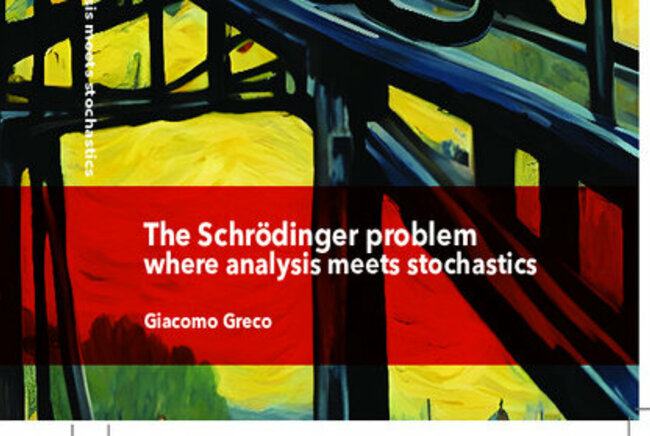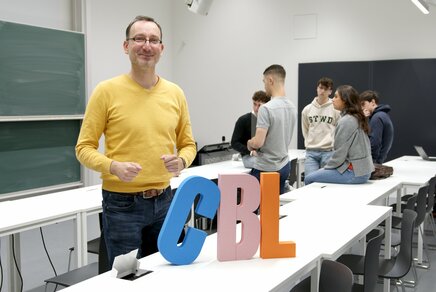Towards Optimal Transport by solving the Schrödinger problem
Giacomo Greco’s work highlights the deep connection between Stochastics and Analysis

What do finding the most likely evolution of a steam cloud, deciding at which bakery Parisian restaurants buy baguettes or generating new data samples have in common? All three are examples of situations where researchers are interested in moving and shaping from an initial configuration to a final target configuration. The major challenge is that the researchers are also looking for the best and cheapest way to achieve this goal. This problem is known as (Stochastic) Optimal Transport, or the Schrödinger problem. In his thesis, PhD researcher Giacomo Greco aims to provide solutions to the problem with the help of stochastic control theory. He defended his thesis on Thursday May 23rd.

Where Stochastics meets Analysis
The Schrödinger problem is a statistical mechanics problem consisting in finding the most likely evolution of a cloud of independent Brownian particles conditionally on the observation of their initial and final configurations. Although this problem had been already introduced back in 1932 by Austrian physicist Erwin Schrödinger, in the past decade it has become increasingly popular thanks to its deep connection with Optimal Transport theory. Optimal Transport can be described as follows: imagine a worker facing the problem of moving a pile of sand to a prescribed location, shaping it into a different configuration while at the same time trying to minimize the cost of his efforts. This cost could be either the fuel consumed by the construction trucks, the time spent on the job, or the distance between the two configurations. Facing and solving these types of issues can be invaluable to organizations. And so solutions to a rather abstract problem suddenly become of great practical value.
Stochastic control theory as solution
To reach workable solutions to the Schrödinger problem, Giacomo Greco made extensive use of stochastic control theory: a sub field of control theory that deals with the existence of uncertainty either in observations or in the noise that drives the evolution of a system. Stochastic control aims to design the time path of the controlled variables that performs the desired control task with minimum cost, despite the presence of this noise. The solutions developed and described by Greco provide good proxies for an optimal transport map. In addition to this, he offers proof for the exponential convergence of Sinkhorn’s algorithm, which provides an efficient and fast way of explicitly computing such solutions.
Title of PhD thesis: The Schrödinger problem-where analysis meets stochastics
Supervisor: prof.dr. M.A. Peletier
Media contact
Latest news


![[Translate to English:] All winners of the 2024 Research Awards. From left to right: Beatrice Federici, Francesca Grisoni, Marc Geers, Vincent Debets, Calum Ryan and Tugce Martagan. Photo: Bart van Overbeeke.](https://assets.w3.tue.nl/w/fileadmin/_processed_/5/1/csm_BvOF%202024_0613_DMH%20TUe%20Research%20Day%20-%20All%20Award%20winners_25f7e77e89.jpg)
![[Translate to English:] [Translate to English:]](https://assets.w3.tue.nl/w/fileadmin/_processed_/7/a/csm_image00007_898e561d33.jpeg)

